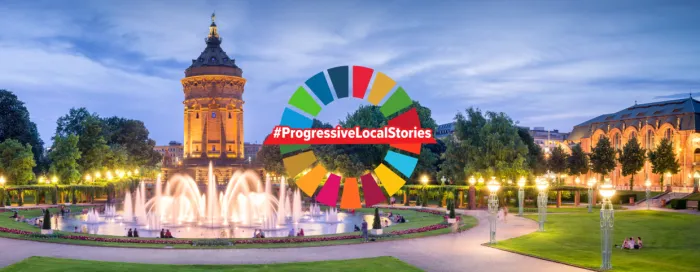Mr Lord Mayor, why is Mannheim a progressive city?
Mannheim is a progressive city because we started at a very early stage to set up and define governance goals for educational equality, inclusion and coexistence in diversity. For the last ten years, we have been working on their implementation and measuring our progress. We can therefore say that Mannheim is a progressive city.
How are the Sustainable Development Goals (SDGs) concretely implemented in your city?
The SDGs play a very important role in our work. In the last year and a half, the city council launched and completed a strong vision for Mannheim. We have now developed a model of “Mannheim 2030” (based on the 17 UN Sustainable Development Goals) and carried out exactly what is required i.e. localise the SDGs, apply them to our own city and build a programme around them.
When it comes to climate change for example, we have developed a strategy aimed at reducing by 2030 the CO2 emissions in our city by 40% through very concrete measures. We are also working on climate change adaptation and on programmes for the greening of houses. The overall goals are thus broken down to a very concrete level of action.
How did Europe help to make Mannheim a more sustainable city?
Europe has helped us in particular in the area of sustainable economic development.
We applied for the European Regional Development Fund (ERDF) at an early stage and, in particular, for urban development. Thanks to EU funds, we were able to produce a new economic cycle in the fields of medical technology and creative industry. This has also had a large spill over effect on the immediate neighbourhood, thereby contributing to a social stability.
Peter Kurz has been Lord Mayor of Mannheim since 2007 and a member of the PES Group in the European Committee of the Regions since 2018. He belongs to the German Social Democratic Party.
